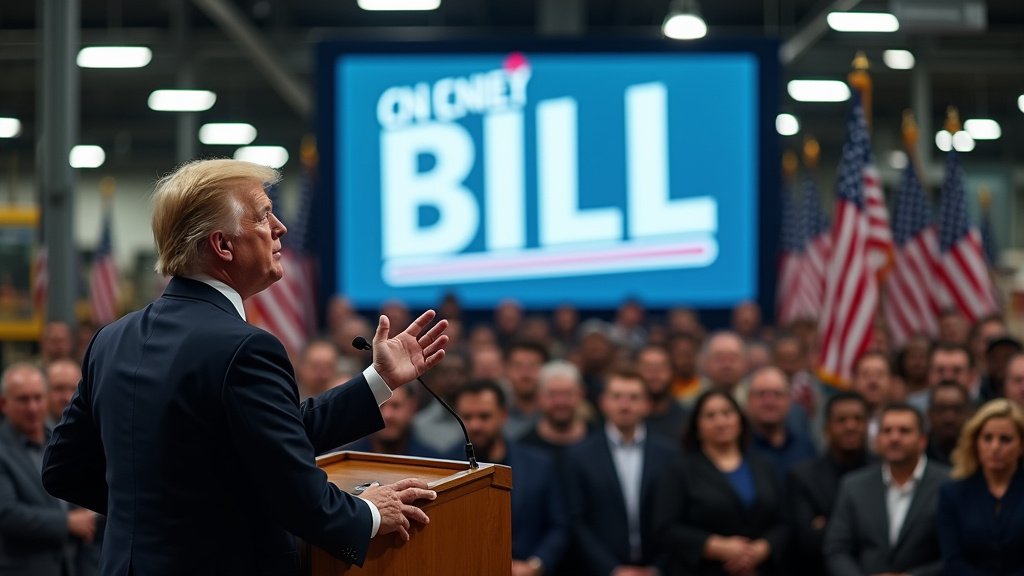Washington D.C. – A significant shift in American attitudes toward information sources is underway, primarily driven by a notable increase in trust among Republicans and Republican-leaning independents, according to a recent comprehensive survey from the Pew Research Center.
The survey, conducted between March 10 and March 16, 2025, involved 9,482 U.S. adults participating on the American Trends Panel. Its findings reveal that Americans overall are expressing greater confidence in information gleaned from traditional news organizations and social media platforms compared to the levels recorded in the previous year, 2024.
Republican Trust Rises Across Platforms
The data indicates that the upward trend in trust is particularly pronounced within the Republican segment of the population. This increase coincides with the return of President Donald Trump to the White House, a context highlighted by the researchers as potentially relevant to the observed changes in media consumption and trust patterns among his political base.
Specifically, trust in national news organizations among Republicans has seen a substantial rise. Around half of Republicans, or 53%, now report having at least some trust in information provided by national news outlets. This figure represents a significant 13 percentage point increase from the 40% who expressed similar trust levels in September 2024.
Local news outlets have also benefited from this surge in confidence among Republicans. The survey found that trust in local news sources rose to 75% among Republicans, climbing 9 percentage points from 66% in September 2024. This demonstrates a robust level of trust in community-focused journalism within this demographic.
Social media sites, often subjects of intense partisan debate regarding misinformation and content moderation, have also witnessed an increase in trust among Republicans. The percentage of Republicans expressing at least some trust in information from social media sites climbed to 45% in the March 2025 survey, an 8-point jump from 37% in September 2024. This marks a continuation of a steady increase in Republican trust in social media, tracing back to a low of 19% in 2021.
Partisan Divide Persists in Media Trust
Despite the gains seen among Republicans, the survey underscores the continued presence of a significant partisan divide in trust levels across different media types. Democrats continue to report considerably higher levels of trust in traditional news organizations compared to their Republican counterparts.
According to the March 2025 data, 81% of Democrats express at least some trust in national news outlets. This is significantly higher than the 53% recorded among Republicans. Similarly, trust in local news outlets remains higher among Democrats, with 87% expressing trust compared to 75% of Republicans.
Conversely, Republicans are now more likely than Democrats to place trust in information originating from social media sites. The survey found that 45% of Republicans trust social media information, compared to 38% of Democrats. This divergence highlights differing preferences or perceived credibility of social media platforms between the two major political groups.
Age Demographics and National News Trust
The Pew Research Center’s findings also provide insights into how trust levels vary across different age demographics. While trust in information saw slight increases across most age groups surveyed, the most pronounced rise in trust for national news organizations was observed among older adults.
Adults aged 65 and older showed a significant increase in their trust of national news organizations. In March 2025, 74% of this demographic reported having at least some trust in national news, marking a substantial increase from the 61% who expressed similar trust levels in 2024. This suggests a potential re-engagement or shifting perspective on national news credibility among older Americans.
Broader Implications and Future Trends
The survey results paint a complex picture of the evolving media landscape and how political affiliation continues to shape perceptions of information validity. The notable increase in Republican trust across various platforms, particularly national news organizations and social media, represents a deviation from recent trends that often showed declining trust in mainstream media sources within this group.
Researchers suggest that the political climate and specific events, such as a change in presidential administration, can significantly influence partisan trust in media institutions. While the survey identifies the increase and its correlation with President Trump’s return, it does not delve into the specific causal mechanisms. Future research will likely explore whether this trend persists and what factors, including content consumption habits, partisan media ecosystems, and political rhetoric, contribute to these changing dynamics of public trust in information sources.
The Pew Research Center’s ongoing analysis of media trust remains a crucial indicator for understanding the health of public discourse and the challenges facing both news organizations and social media platforms in fostering credible information environments in an increasingly polarized society. The data from March 2025 underscores the fluidity of public opinion on media trust and the powerful influence of political context on how Americans evaluate the information they consume daily.










